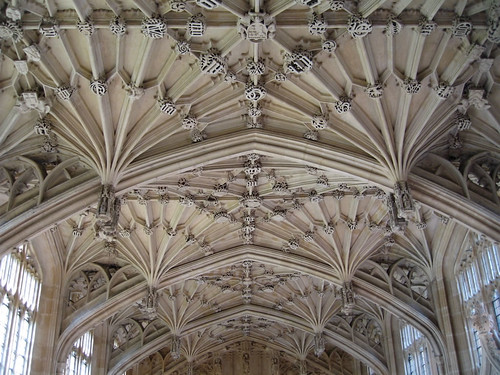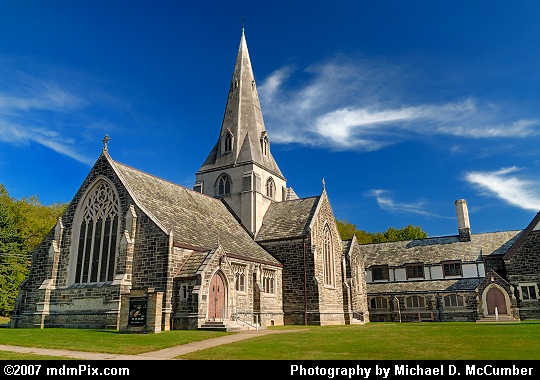Traditionally, monks were the architects that designed churches in France, and often their creations were basic and practical. However; as powers in France increased there was also an increased desire to create symbols of religion and authority that were grand and spacious. Out of this need emerged concepts in Gothic architecture and design.
One of the first changes Gothic architecture brought to cathedral design was a change in vaulting. Architects worked on how to substitute a stone vault for a wooden roof, while incorporating the use of intersecting stone ribs. That lead to the development of expanded of windows, the use of flying buttresses for support, and the use of slender piers.
Gothic windows covered almost the entire wall surface and had varied designs with delicate stone decorations.The thick and heavy walls traditionally used in Romanesque cathedrals to create stability were abandoned and walls were made thinner and used as an active skeleton that integrated arches, piers and buttresses.
During the medieval period cathedrals were built in two forms: Romanesque and Gothic. Romanesque cathedrals had a few distinctive features. Firstly, the buildings used rounded arches for structure support. The rounded top of these arches exuded an increased force onto the cathedral walls, and thus the walls had to be thick for support. Additionally, buttresses were added along the side of the outer walls as support. Due to the thickness of the walls around the base of arches and the obstruction of the buttresses, windows could only be placed near the top of the walls and were small in size. Only smaller windows could be places along the lower sides of the walls, if they were even placed at all. The overall structures in these cathedrals resembled that of a fortress.
Gothic cathedrals created structures that managed structure forces differently. Gothic architects used flying buttresses to support cathedral arches. Basically, this meant that rather than placing the buttress directly next to the arch wall for support, the buttress was attached to the wall with a smaller connecting arch arm, creating support for the walls and rounded arches. This displaced the force from the arch walls and buttress to the foundation. Because of the space the flying buttress created between the walls and the supporting buttresses, windows could be placed lower on walls where the sun could enter and could also be made larger.Additionally, pointed arches were used as opposed to rounded for increased roof support.
Gothic architecture in cathedrals became the art of erecting buildings with stone vaults and thin walls, whose ribs intersected (concentration of load) and whose thrusts were supported by flying buttresses (the grounding of the thrusts). The downward and outward thrust of the vaulting was met by an equivalent resistance in buttress and solid earth, resulting in an equilibrium from well-adjusted opposing forces.
Although many think Gothic architecture was mainly concerned with elaborate design and heavy ornamentation, in actuality Gothic architecture emerged as a response to structural need with sound engineering. All forms of decoration came as an after thought to the practical designs. Gothic masters of work often said "nothing which is inherently needed could be ugly." Gothic cathedrals sought to create larger buildings with increased support while doing away with blank walls and solid bland surfaces. Interestingly, modern copies of Gothic architecture tend to ignore the original engineering intent of the structures and often place a heavy emphasis on decoration.













